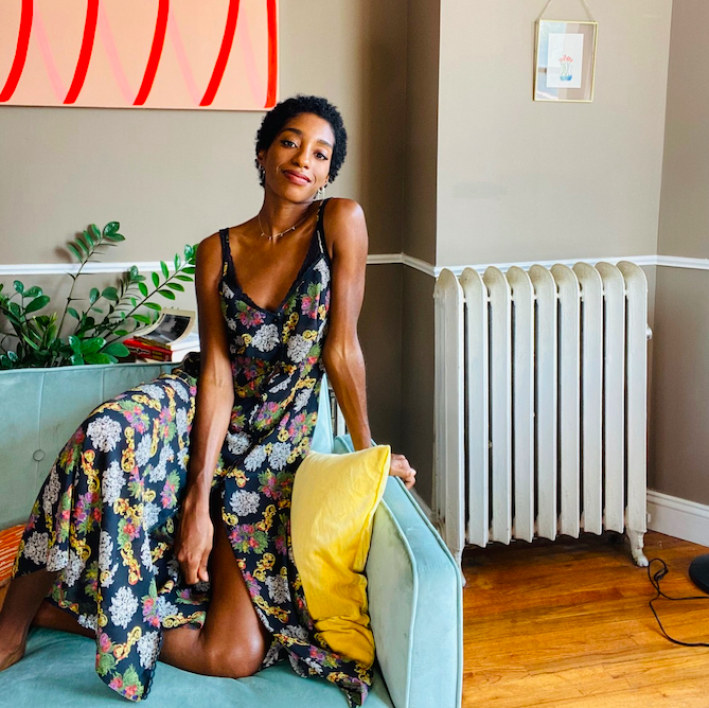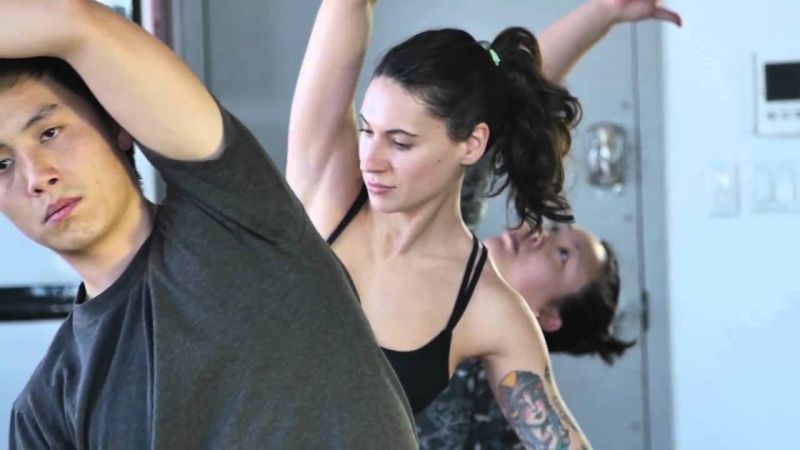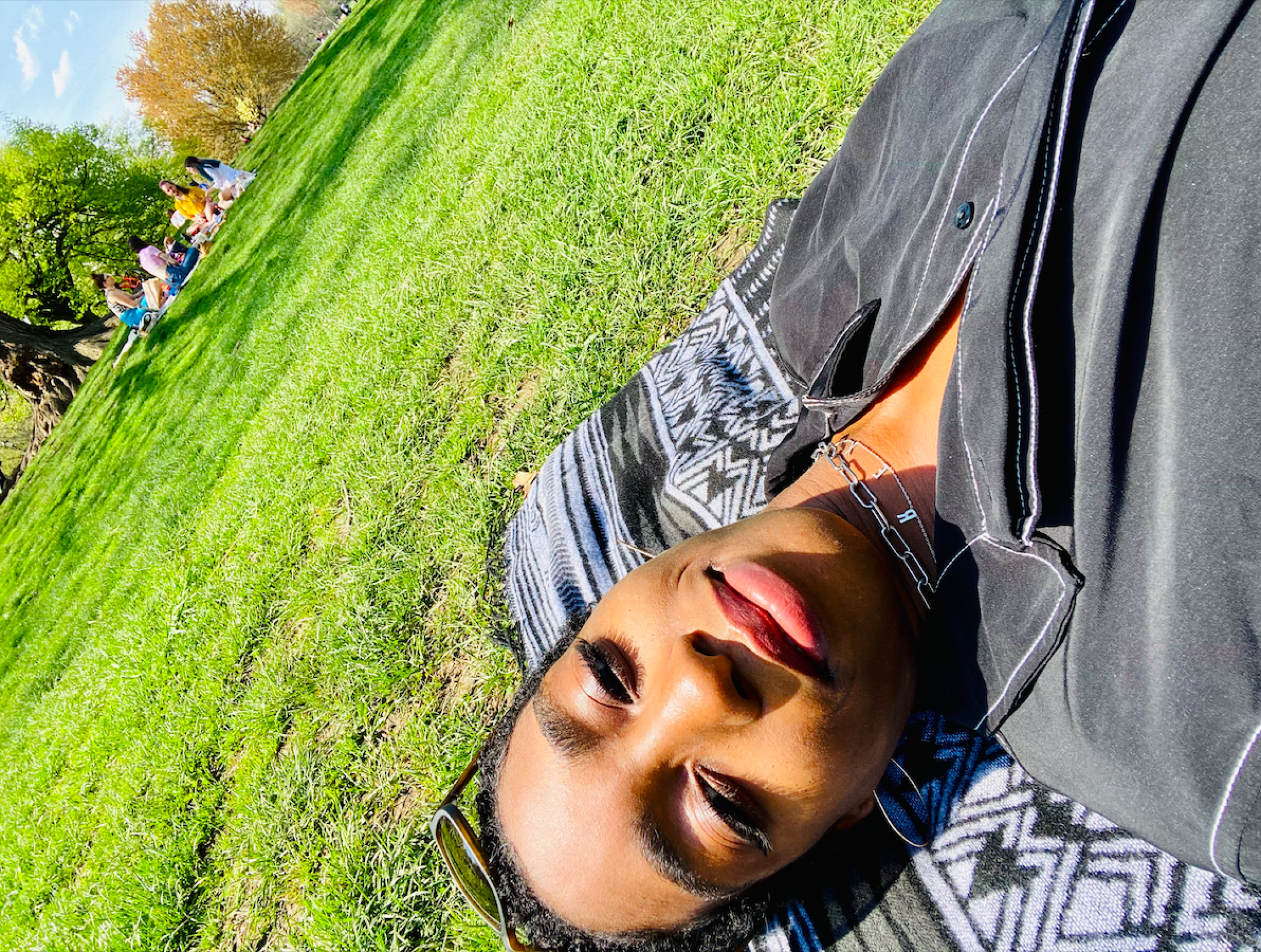What I Learned From Meditating With OCD
Mental traps you should try to avoid.
Written by Alexis Alizor

01 Alexis shares her tips on how to meditate when living with OCD.
02 She encourages people to stay flexible, accept themselves, hold space to process all feelings, and let doubtful questions pass through.
I began meditating because I really had no other choice. I used to always want to do things “just right” or “perfectly”, and was even misdiagnosed once with a phobia of failure. Everything I enjoyed would turn into a point of anxiety, so the last thing I wanted to do was sit still with my intrusive thoughts. Now I meditate because it is an important part of my mental health routine
At first, I started small — five minutes a day. All I wanted to do was begin building a routine. For my type of OCD, I knew that I had to approach meditation in a way where it didn’t turn into another compulsion. While it took some trial and error, I am now more aware of my intentions and how I practice.
Here are a few lessons I’ve learned from meditating with OCD…
Don’t be rigid.
Be consistent, but also flexible. It’s okay to miss a sitting. Sometimes, I would miss my morning meditation and then worry that my entire day would be thrown off. Whether this is true or not doesn’t matter — it was my anxiety telling me that I had to do “x” or else “y” might happen. My OCD would mislead me into trying to execute my meditations perfectly.

Being Mindful & Letting Go
Trying to be the perfect meditator won’t help because it only re-enforces rigidness. A rigid mind is brittle, and breaks under uncertainty and change, so a big part of my practice is learning to live with ease and be okay with things not going “right” all of the time. Any sense of perfectionism in your meditation routine will create struggle, and to me, mindfulness should be intentionally effortless.
As long as I am generally consistent with my practice, I now know that it's okay to miss a day or two. The main takeaway is that I approach everything with a soft grip, and whenever I notice any anxiety around executing my practice in a particular way, I let it go.
Don’t expect meditation to always feel good.
Early on in my meditation journey, I promised myself that I would try to have some routine in my meditation schedule. I knew that if I only meditated whenever I was feeling bad, it could quickly turn into a compulsion, or a practice to make bad feelings go away. My meditation teacher once told me, “It’s not what you do, but how you do it” so be mindful of your intentions when going into meditation.
Before I meditate, I like to remind myself that I am not meditating to feel better, I am meditating to feel. Whenever any feelings come up, I relax around them so that I can experience them with as much space as possible. Notice what you feel mentally and physically, and be okay with whatever emotions pass through.
Sometimes we feel good in meditation and want to hold onto that moment for the rest of our lives, but this is also not the goal of meditation. We have to learn to treat that moment of pleasure the same way we would treat any other moment and simply let it go.
Don’t meditate to fix yourself.
A teacher I admire, Pema Chodron, inspired me to explore why I meditate. This is a question I always come back to again and again. For a long time, a part of me believed that I could meditate away anything that I didn’t like about myself — fear, anger, discomfort. If I ended a meditation still feeling fearful, I thought I made no progress.

Turning my meditations into an endless self help project was never productive because what I was actually doing was resisting. Self healing became an area I tried to control. I was on a never ending quest to “fix” myself, and this perspective of self improvement feeds on internal resistance. However, avoiding certain parts of yourself only brings more attention to them.
Instead, change those habits by accepting and holding yourself with kindness. Don’t meditate to fix yourself, meditate to accept yourself.
Don’t let doubt trip you up.
When you start meditation, you may start to wonder, “Am I doing this right?” In some cases, this is an innocent question that fades away once you’ve gathered more information. In other cases — especially if you are susceptible to anxiety — this can turn into insatiable anxious noise.

Those of us with OCD are no strangers to doubt and how our minds can fixate on questioning almost anything. The thing is, doubt can feel extremely convincing. Although I have been meditating for years now, I still sometimes wonder “Am I doing this right?”
When doubtful questions visit me in my practice, I take note of those feelings and treat them as any other thought by allowing them to pass through. Incorporating doubt into your practice is a powerful skill to have for working through intrusive thoughts without trying to get rid of them or find answers.
With OCD, we have to continue to check ourselves and our intentions when going into things. Asking yourself why you meditate is one way to do this, and with the right intentions, meditation can be a powerful tool of transformation.
<>
ABOUT THE AUTHOR
My own struggle with panic attacks & OCD inspired my research into mindfulness. I am a certified Meditation Teacher that focuses on helping you to build a meditation practice that allows you to let go of anxious noise and doubt when pursuing your values, goals, and tapping into your inner wisdom.
Website: callmerexx.com
Instagram: @call.me.rexx
Support our work
We’re on a mission to change how the world perceives mental health.



















